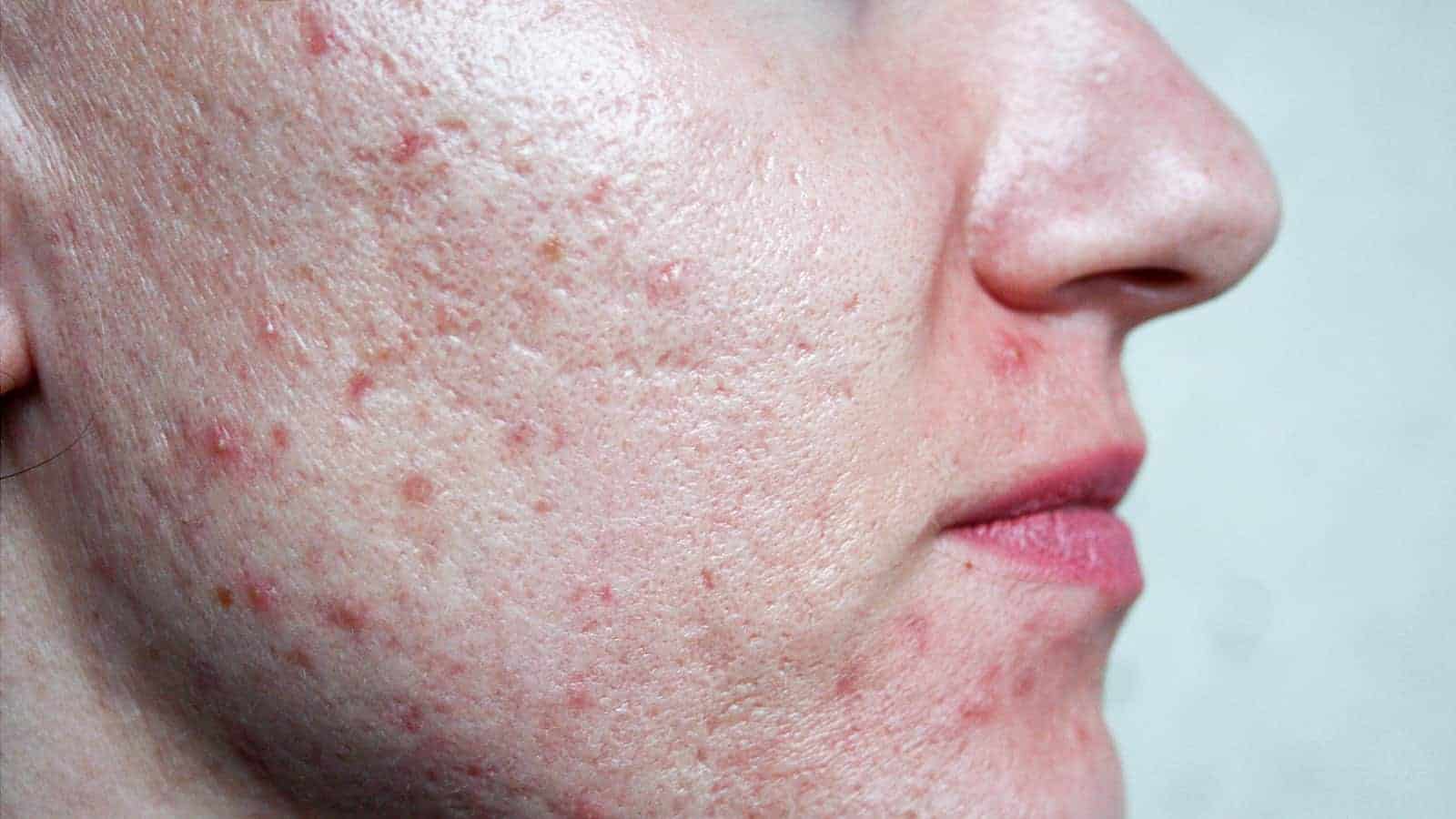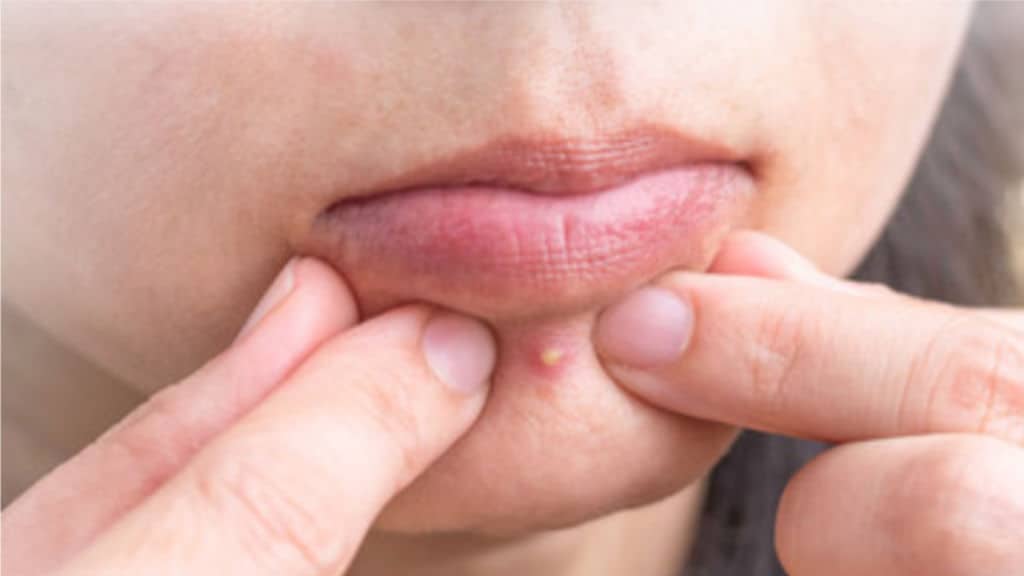Acne scars are permanent marks on your face that happen in response to an acne-related wound. Since no one wants to experience acne scarring, it is essential to learn the habits that cause it. Plus, knowing what to do instead is helping to help get the problem under control.
As much as you want to get rid of your acne, you should know that many of the methods you use might be making the problem worse. With worsening acne and not treating it properly comes the dreaded acne scars. You must begin breaking bad skincare habits if you want to prevent any further acne scarring.
Acne is a problem for many people, so there is plenty of research out there about it. Dermatologists have figured out what causes acne scarring and ways that it can be prevented. It is up to you to follow their advice, though.
Much of their advice should be easy to implement. While your bad habits might be hard to break, you can make it possible by remembering that you don’t want acne scarring.
What Are Acne Scars?
Acne scars are what appear when your skin experiences deep trauma from anything related to acne. The scars may appear as indented skin areas or even raised skin but never flush with the rest. Acne scars don’t often improve overtime as other scars do, making them permanent features of your body.When you have acne, your body naturally tries to heal itself. When your acne ruptures, the liquid inside comes into contact with the rest of your skin, causing inflammation and irritation. The skin will become red and tender to touch.
Once this has happened, your body continues the healing process by producing collagen fibers. If there isn’t enough collagen or there’s too much, then scars form. Only when the perfect amount has been produced will your skin be clear of scarring after healing.
Not all acne is prone to scarring, though, so you might be safe. It is best to be safe either way, though, and do what it takes to prevent acne scarring.
The type of acne most often causes scarring is inflammatory acne, which involves deep cysts or nodules under your skin. Any acne can cause scarring if you are guilty of any of the habits discussed below.
Seven Habits That Cause Acne Scarring
Don’t do these things if you want to prevent scars on your skin.
1. Squeezing Pores to Remove Blackheads
No one wants to have blackheads, especially if they are highly noticeable. Please resist the urge to squeeze them, though, because it can cause permanent scarring. Squeezing your pores can make them larger or damage them completely.
If the pore ruptures as you squeeze it or remove the blackhead, the bacteria go into deeper skin layers. When it goes into the deeper layers, it causes an inflammatory response and scarring. Plus, when you remove blackheads, you also run the risk of new bacteria getting into your pores.
2. Over-Irritating Your Acne
You might be willing to do whatever it takes to eliminate your acne, but over-irritating it is not the answer. Some over-the-counter acne medications will irritate your skin, and many home remedies will, too.
Some methods will make your skin feel better immediately but then cause issues later on. By putting the wrong products on your face, it could cause worsening conditions or permanent scarring. You could end up preventing your pores from naturally releasing oil, trapping bacteria inside.
Any product or remedy containing alcohol is likely to irritate your skin, too. Alcohol dehydrates your skin, which makes acne worse and leaves you prone to other conditions. Be wary of anything containing lemon or tea tree, too, which can also cause problems.
If you aren’t sure where to begin, you could ask a dermatologist which ingredients are safe for you. They may even recommend an all-natural treatment that is safe and effective.
3. Popping Pimples
It is tempting to squeeze your pimples, but popping them will make the problem worse and cause scarring. When you pop a pimple, the skin around it becomes inflamed and is at risk of infection. If that happens, scarring occurs.
Plus, any liquid that comes out of the pimple can get into other pores, causing even more pimples to appear. Squeezing a pimple can also cause the bacteria to move further into the skin, making it worse. Keep in mind that you expose your open skin to new bacteria from your hands as you pop a pimple.
4. Not Treating Acne Right Away
You may hear that you should ignore your acne and leave it alone to get it to go away. Leaving it alone is bad advice, though, because acne needs treatment if you want to prevent scarring.
Leaving acne untreated can cause the blood capillaries near the surface of the skin to become permanently dilated. When dilation occurs, the result is the development of scars and red marks on your face that never go away.
5. Using too Much Makeup Overtop of Acne
When you have acne, you might be self-conscious about it. Covering it up with makeup seems to be the easiest fix, but it makes the problem worse.
Putting makeup over your acne to cover it up blocks your pores and traps oil and bacteria in them. Not only does this make your acne worse and cause scarring, but it also can make existing acne scars worse.
Many makeup products contain oil or unnatural ingredients, too, adding additional problems. The oil from your makeup will make its way into your pores, hindering any possibility of improving your skin.
6. Touching Your Face
It might seem harmless to touch your face, but it is a bad habit that can cause acne scarring. Every time you touch your face, you are exposing your pores to new bacteria. It increases the risk of a breakout while preventing a breakout means preventing acne scars.
Touching your face might be a hard habit to break. Many people absentmindedly rest their face on their hand or touch existing pimples. These small gestures can cause problems quickly, so find a way to limit them.
Even when you wash your hands regularly, touching your face is a problem. Your hands also have oil on them, causing excess oil to get into your pores.
7. Picking at Scabs or Trying to Cover Them
When you have a scab on your face from acne, leave it alone. Don’t pick at it, and don’t put anything on top of it, including makeup. Scabs protect your open wounds and help them heal properly and more quickly.
If you pick the scab before the wound heals, it makes the healing process longer. Plus, it increases the risk of scarring.
Four Things to Do Instead of Picking and Popping at Your Skin
Here are a few solutions you can try at home.
1 – Treat Acne Immediately
Getting your acne under control helps prevent acne scars. Use safe products to treat it and, if they don’t work, consider visiting a dermatologist. The key is to find what works for you and remember that everyone’s skin is different.
2 – Minimize Inflammation
Inflamed blemishes tend to scar your skin more often than non-inflamed breakouts. Please do what you can to reduce the inflammation and avoid making it worse. Don’t use aggressive skin scrubs or overly-irritating products at this time.
3 – Visit a Dermatologist
If nothing else works, you need to seek help from a professional. A dermatologist can help you find the products that work for you and help treat the issue effectively. This way, your skin can heal without scarring.
4 – Minimize Oil
If you can minimize excess oil on your skin, you can help reduce and heal acne. Since you need acne to develop acne scars, preventing breakouts is the best way to prevent scarring.
To minimize excess oil, there are a few things you can do. First, keep your hands always clean and keep them away from your face whenever possible.
Next, find the right skincare products for you. Find a face wash and moisturizer without oil or other unnatural ingredients and use them regularly. Consider exfoliating your skin once a week to remove oil buildup in your pores.
Final Thoughts on Habits That Cause Acne Scarring (and what to do instead)
If you have acne, you will likely develop at least some scarring. You can minimize the amount of damage, though, by avoiding the bad habits that cause acne scarring. Work on implementing the tips for what to do instead to give yourself a better chance of clear skin.
No one wants acne scars on their face, but remember that it is common everywhere. Don’t feel bad if you have some acne scarring because now you know how to minimize the risk of it happening again. While you can’t change what has already happened, you can change what you are doing now.
Keep in mind that what works for one person might not work for another. Everyone has different skin, so you might have to try various methods until you find the one that works. Work on changing your habits, and your skin will likely improve quickly.

















 Community
Community

